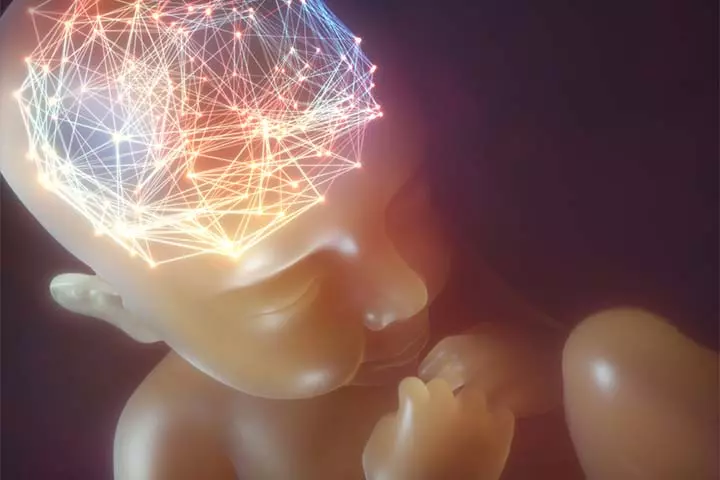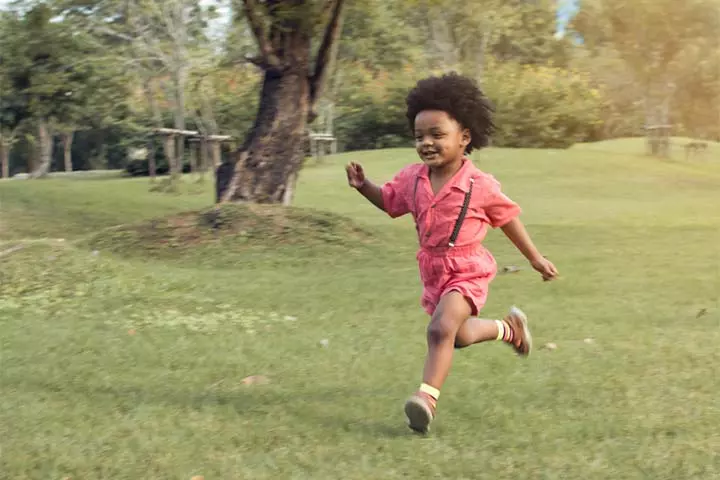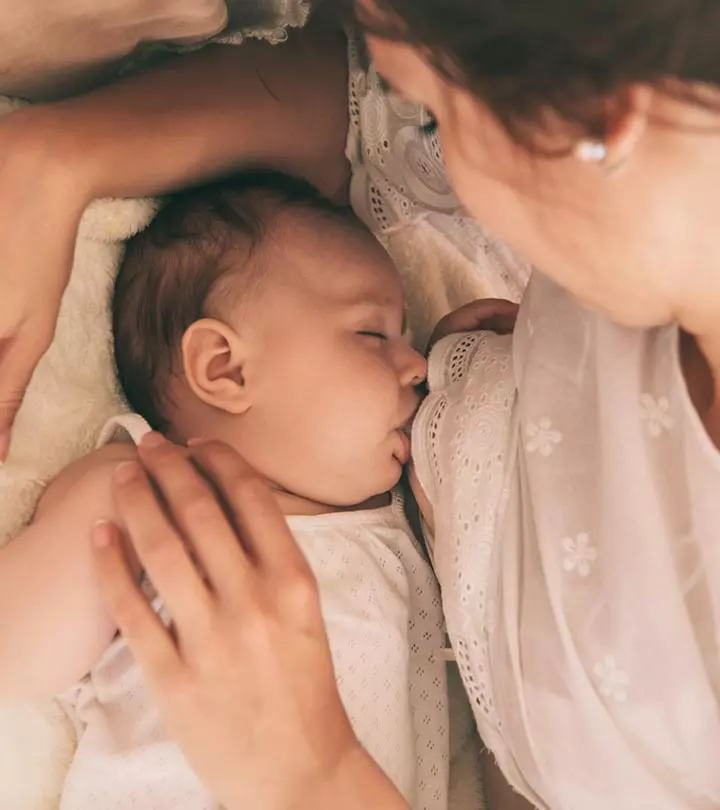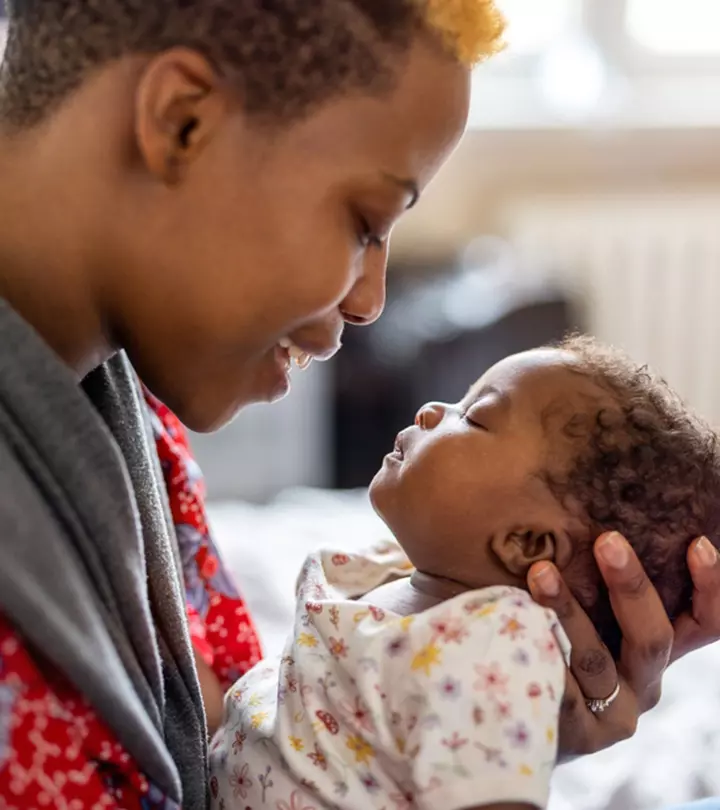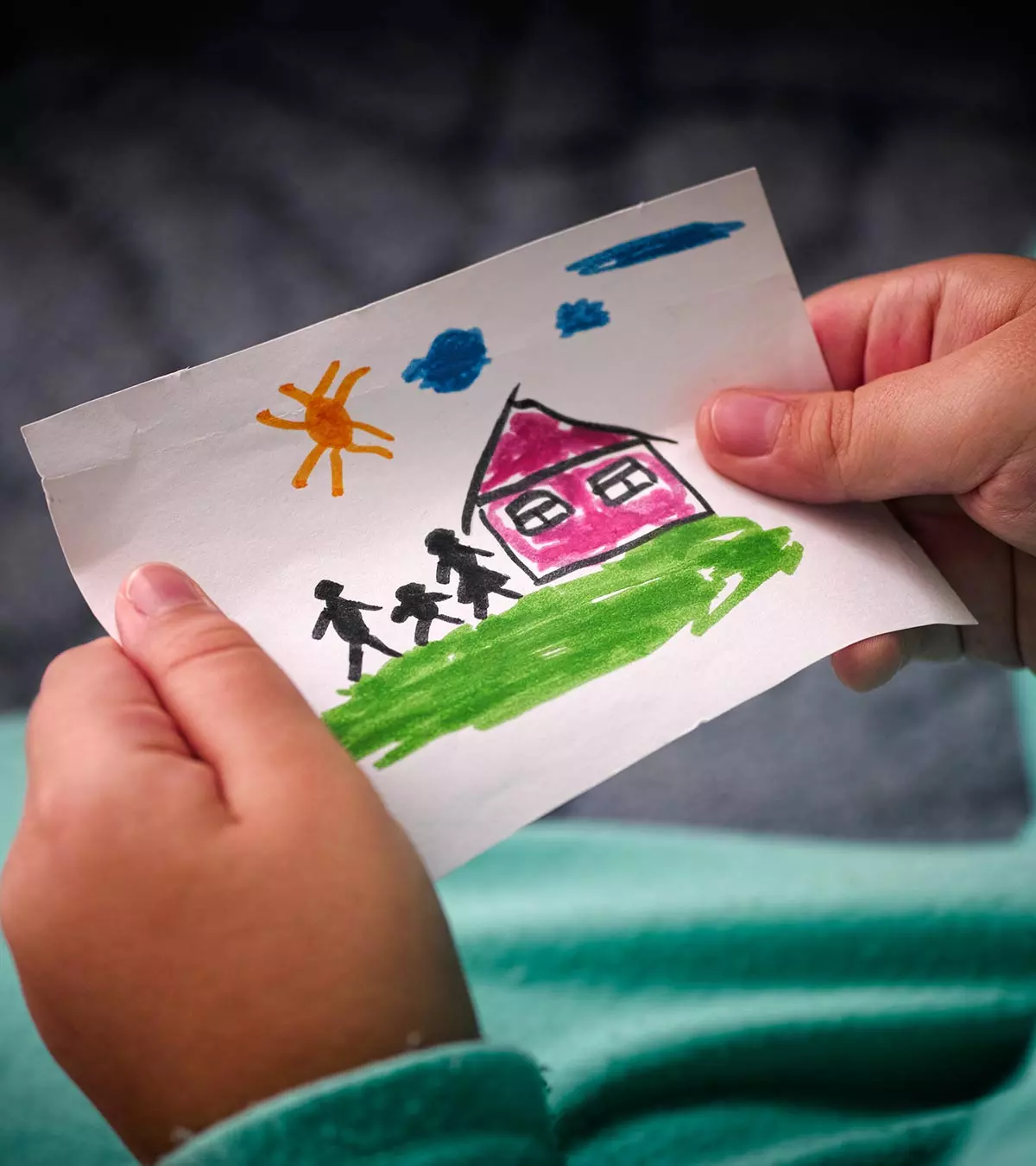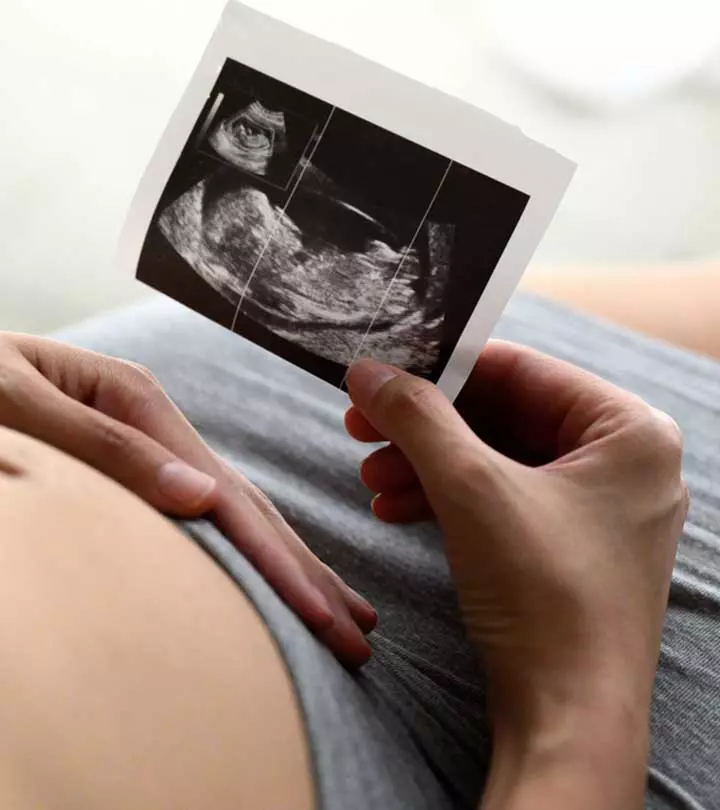

Image: Shutterstock
You’ve probably heard many health professionals say that about 90% of the brain development of a human being happens before they turn 5 years old (1). And although this may sound unbelievable, it’s not a stretch. The process starts in the uterus, and while it does continue into adulthood, the brain develops at a much faster rate through the first 1,000 days of life than at any other time. The early years of a child’s life are of paramount importance, as this is when their brain exhibits a remarkable capacity to observe, adapt, and acquire new skills. From recognizing parents’ faces to engaging in adorable mess-making antics and eventually taking those first steps and uttering those first words, infants undergo rapid development in their initial months. In fact, the brain undergoes significant development within the first 1000 days of life, even if it may not be readily apparent. If you’re interested in tracking your newborn’s progress and gaining insight into their remarkable developmental journey, this article is designed with you in mind.
1. Brain Stage: In The Womb
Several processes occur in the uterus during fetal development, but two of the most crucial ones are brain cell creation and neuronal migration. Once brain cells are generated, they begin the process of forming a functional brain as efficiently as possible (2). This is achieved through a crucial mechanism called neuronal migration, which involves brain cells moving to specific regions within the brain where they are intended to be positioned (3). This could be deep within the hippocampus, responsible for memory storage, or in the motor cortex, which plays a role in controlling physical movements. These processes are essential functions of cell division at this stage.
It’s incredible to think that your baby’s development commences within the womb. They begin the process of building their motor and sensory systems during these early stages. Most of their senses come to life around the 8th week of gestation. By the time they reach about 11 weeks, they start using their tiny hands and feet to explore their environment and their own little bodies. They’re already responsive to their mothers’ movements, which is why they often respond with kicks. This responsiveness could be attributed to their sense of hearing, as their ears are fully formed by week 20 (4). While their eyesight may not be as advanced as their hearing at this point, their vision is also gradually developing while in the womb.
2. Brain Stage: Birth To 12 Months
After your baby is born, their development continues with three major processes that unfold during their formative years. One of these processes involves neurons forming new connections with each other. This crucial step helps establish effective communication between various parts of the brain (5). Brain cells typically achieve this by growing additional dendrites, which can be thought of as “arms” connecting the brain cells.
The second process is known as pruning, a mechanism in which the brain initially creates extra cells and connections to allow for flexibility when necessary (6). However, it later identifies redundancies or unnecessary connections and trims them down to prioritize essential ones. The third process, called myelination or white matter development, extends throughout our 20s and beyond (7). During this phase, neurons that are frequently used become enveloped in white matter, facilitating faster and more efficient transmission of messages.
3. Birth Stage: 1 To 3 Years
Beyond the ongoing development of sensory, motor, and cognitive functions, more intricate brain systems start to interact around the preschool age (8). Rather than undergoing significant changes and developments in the visual or cognitive system, the brain’s attention shifts toward connecting various regions to establish a more harmonious working system. As a result, the brain becomes more efficient. We can also observe the maturation of brain regions responsible for emotional processing, logic, and reasoning, enabling your child to learn how to balance and share their toys, among other things.
During this stage, children undergo significant physical development. They also engage in various physical activities and movements. Additionally, they start forming short sentences or using a few words. Their brain systems support their ability to follow instructions.
It may be overwhelming to see everything that goes on inside your baby’s brain during their first 1000 days but the brain is a marvelous instrument. As long as your child is hitting their milestones and is healthy and strong, there is absolutely nothing to worry about. Just focus on keeping your baby safe and healthy and let the brain do the rest!
Community Experiences
Join the conversation and become a part of our nurturing community! Share your stories, experiences, and insights to connect with fellow parents.

